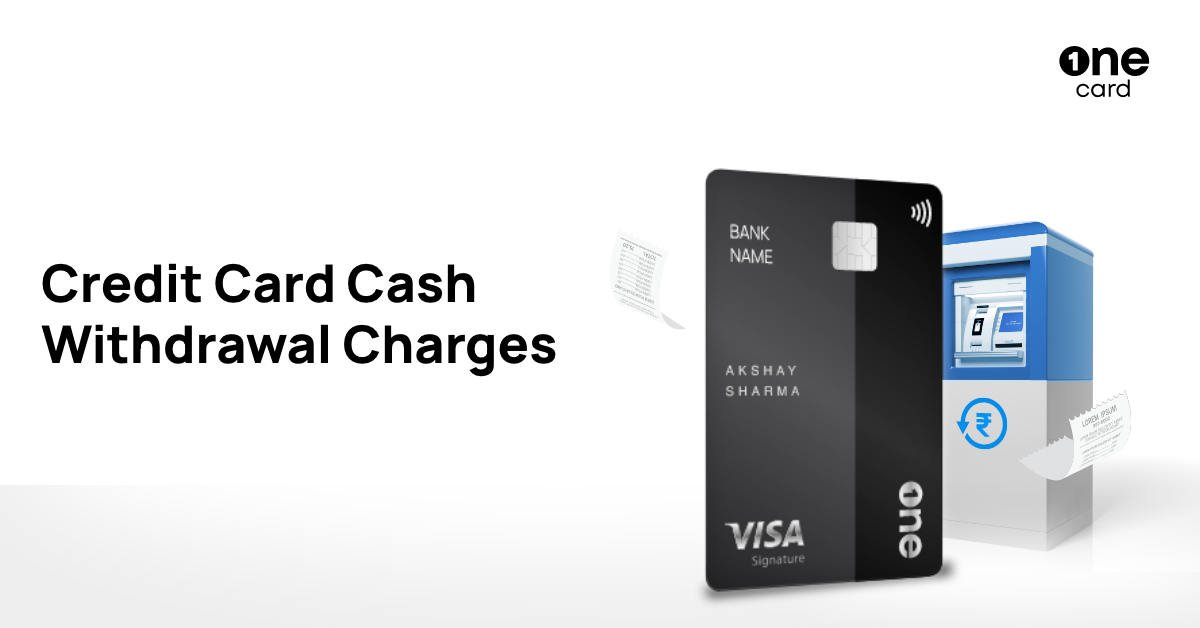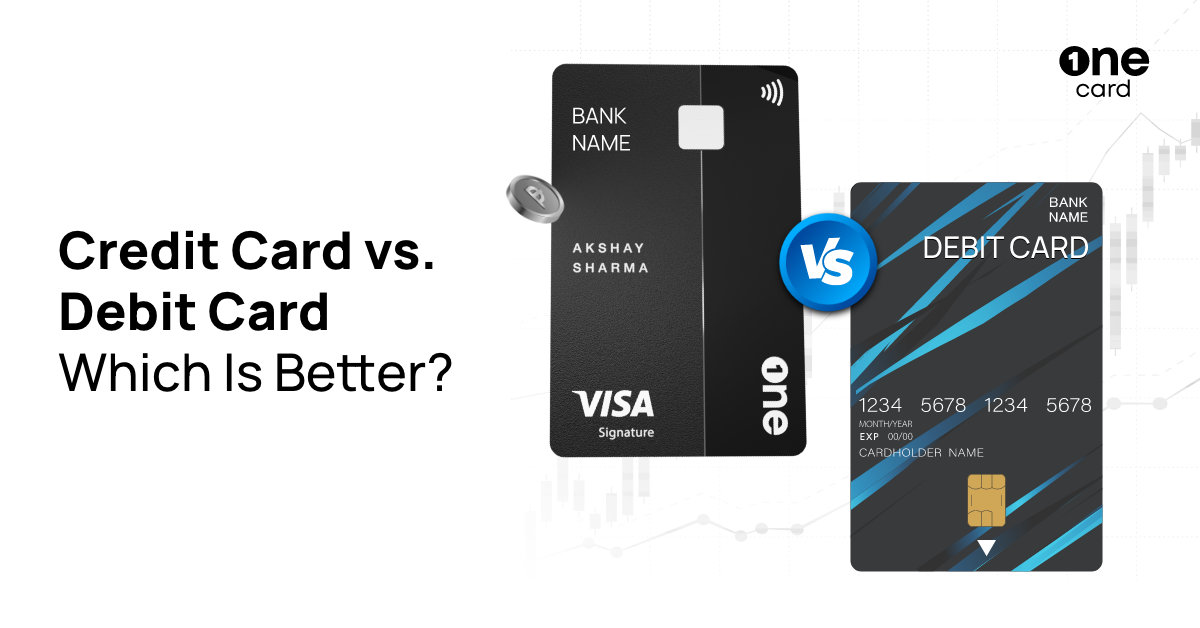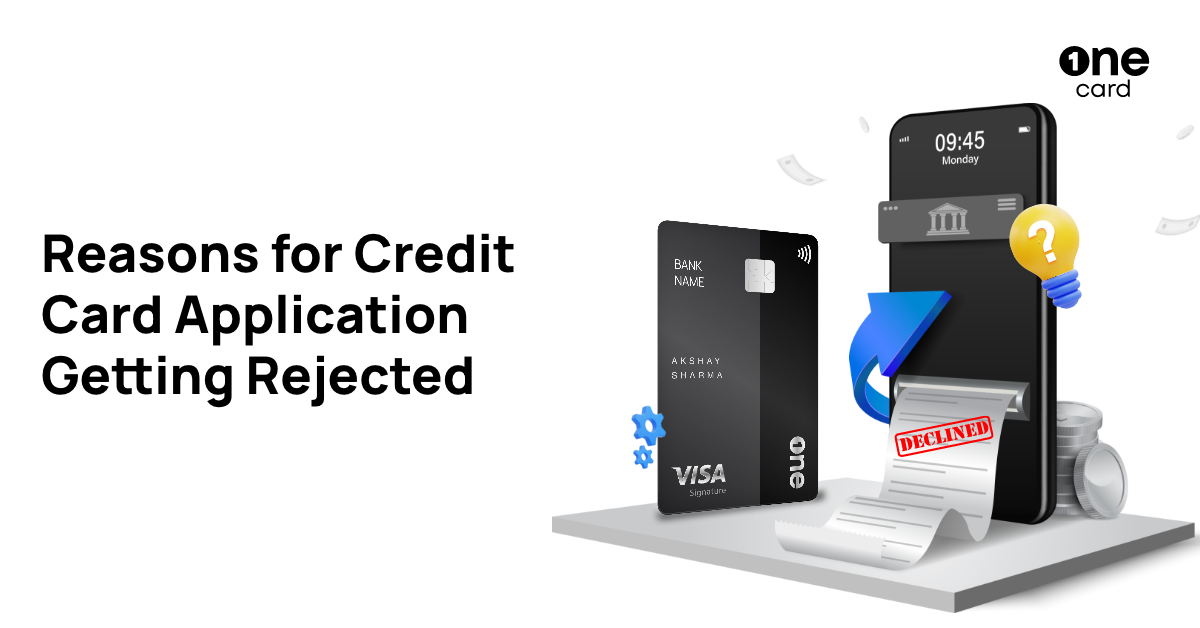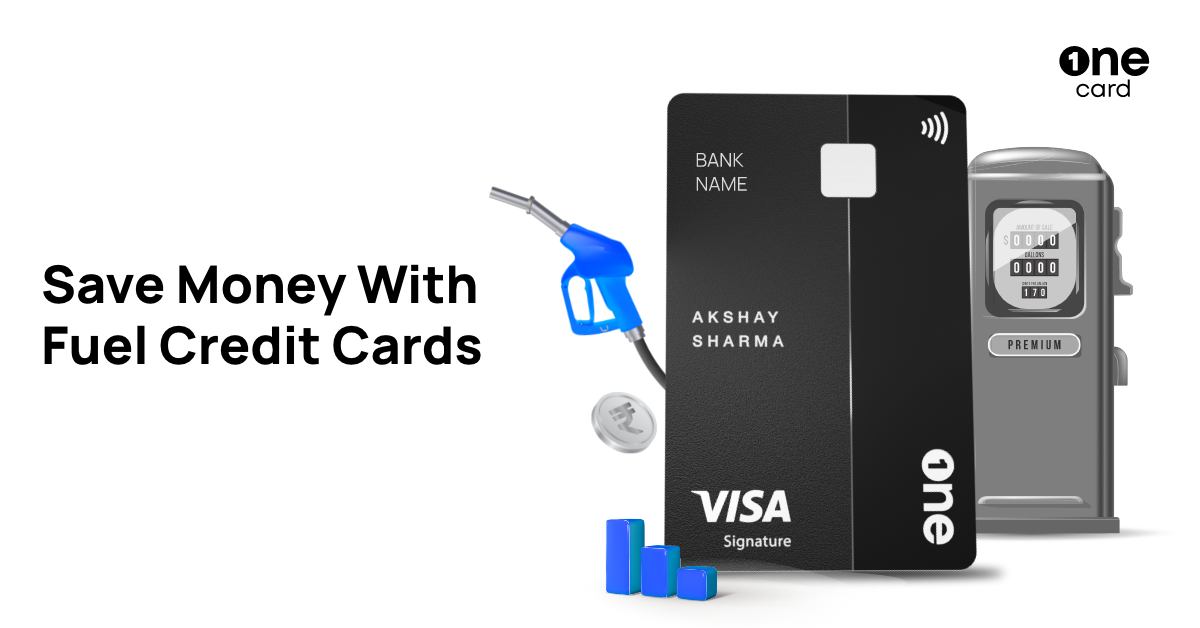What is Credit Card Cash Withdrawal? Know Charges, Pros & Cons
By OneCard | June 14, 2023

Credit cards don’t just let users buy now and pay later, but also provide other facilities, like the option of withdrawing cash from an ATM. It's worth noting that credit card cash withdrawals come with certain fees, and knowing them beforehand is always recommended to avoid any additional charges.
Table of contents:
What Are Credit Card Cash Withdrawal Charges?
Credit card cash withdrawal charges are the fees you are charged when you withdraw cash from an ATM using your credit card. These charges can vary depending on the credit card provider and the cash you withdraw. Generally, credit card cash withdrawal charges range from 2.5% to 3% or sometimes 5% of the transaction amount, subject to a minimum amount.
It's important to note that credit card cash withdrawal charges are not the same as the interest rate charged on the amount withdrawn. Credit card cash withdrawals are not eligible for any interest-free period and are levied each time cash is withdrawn using a credit card.
The interest charged on cash withdrawals is usually higher than that for regular purchases. If you take out cash using your credit card, remember that you'll be subject to a cash withdrawal fee and a higher interest rate.
Also Read:- How is Credit Card Interest Rate Calculated and How to Avoid Paying The Same?
Pros and Cons of Credit Card Cash Withdrawals
Credit card cash withdrawals can be a convenient way to access cash when needed, but they also have some drawbacks. Here are the pros and cons of utilising a credit card to withdraw cash:
| Pros | Cons |
|---|---|
| Convenient access to cash | High fees and interest rates |
| No documentation or approval needed | Potential impact on credit score |
| It can be used for emergencies | This can lead to a cycle of debt |
| Rewards programs may apply | Cash limits may be lower than credit limits |
| Easy to withdraw through ATMs | It may affect your credit history |
While credit card cash withdrawals can be helpful in certain situations, using them wisely is essential. Here are some guidelines for using a credit card to withdraw cash, including what to do and what not to do:
Dos:
- Use credit card cash withdrawal for emergencies only.
- Check your cash from credit card withdrawal fees and interest rates before withdrawing. Knowing the costs upfront can help you avoid surprises later.
- Pay off the cash withdrawal balance as soon as possible.
Don'ts:
- Avoid credit card cash withdrawal unless it’s necessary.
- Don’t withdraw more than you need.
- Avoid maxing out your credit card.
Understanding the Impact of Credit Card Cash Withdrawals on Your Credit Score
When you withdraw cash using your credit card, it can affect your credit score. Here are some points to take into account:
Increased Credit Utilisation
Credit utilisation is the amount of credit you use compared to your credit card limit. If you withdraw an amount using your credit card, it may increase your credit utilisation, which can harm your credit score.
Potential for Late Payments
If you're unable to pay off your balance on time, it can negatively impact your credit score.
Short-Term Impact
Although withdrawing cash from a credit card may hurt your credit score in the short term, it is essential to remember that it can be rebuilt. If you use your credit responsibly and make timely payments, your credit score should recover over time.
Alse Read:- Understand One Credit Card Bill Repayment
Conclusion
Credit card cash withdrawals can be helpful when you need quick access to cash. However, it's important to remember the fees and interest charges that come with it. By understanding the costs upfront, you can make an informed decision on whether or not to use this option. Additionally, it's crucial to use credit card cash withdrawals responsibly and avoid using them for non-emergencies. By following the do’s and don’ts and paying off the balance early, you can avoid getting into a cycle of debt. Finally, be aware of the impact on your credit score and use credit responsibly to maintain a healthy credit score.
FAQs on Credit Card Cash Withdrawal Charges
Can I withdraw money from a credit card at an ATM?
Yes, you can withdraw money from an ATM using your credit card. However, it's important to note that cash withdrawals on credit cards usually come with high fees and interest rates, so it's generally not a good idea to rely on them regularly. If you must withdraw cash from your credit card, try to repay the balance immediately to avoid accruing interest and fees.
What happens if I don't pay back a credit card cash withdrawal?
If you don't repay a credit card cash withdrawal, the balance will accrue interest at a high rate, which can spiral out of control in no time. Furthermore, a poor credit score could affect you, making it more challenging to get good credit in the future. To avoid these consequences, make your payments on time and repay the balance as soon as possible. If you're struggling to repay a cash withdrawal, consider contacting your credit card issuer for assistance.
What is the maximum credit card cash withdrawal amount?
The maximum cash withdrawal amount varies depending on your credit card issuer and the cash limit assigned to your card. Generally, cash limits range from 20% to 40% of your credit limit. However, it's essential to note that withdrawing the maximum amount can result in high fees and interest rates, so it's generally recommended only to withdraw the amount you need and repay the balance as soon as possible.
**Disclaimer: The information provided in this webpage does not, and is not intended to, constitute any kind of advice; instead, all the information available here is for general informational purposes only. FPL Technologies Private Limited and the author shall not be responsible for any direct/indirect/damages/loss incurred by the reader for making any decision based on the contents and information. Please consult your advisor before making any decision.



Sharing is caring 😉